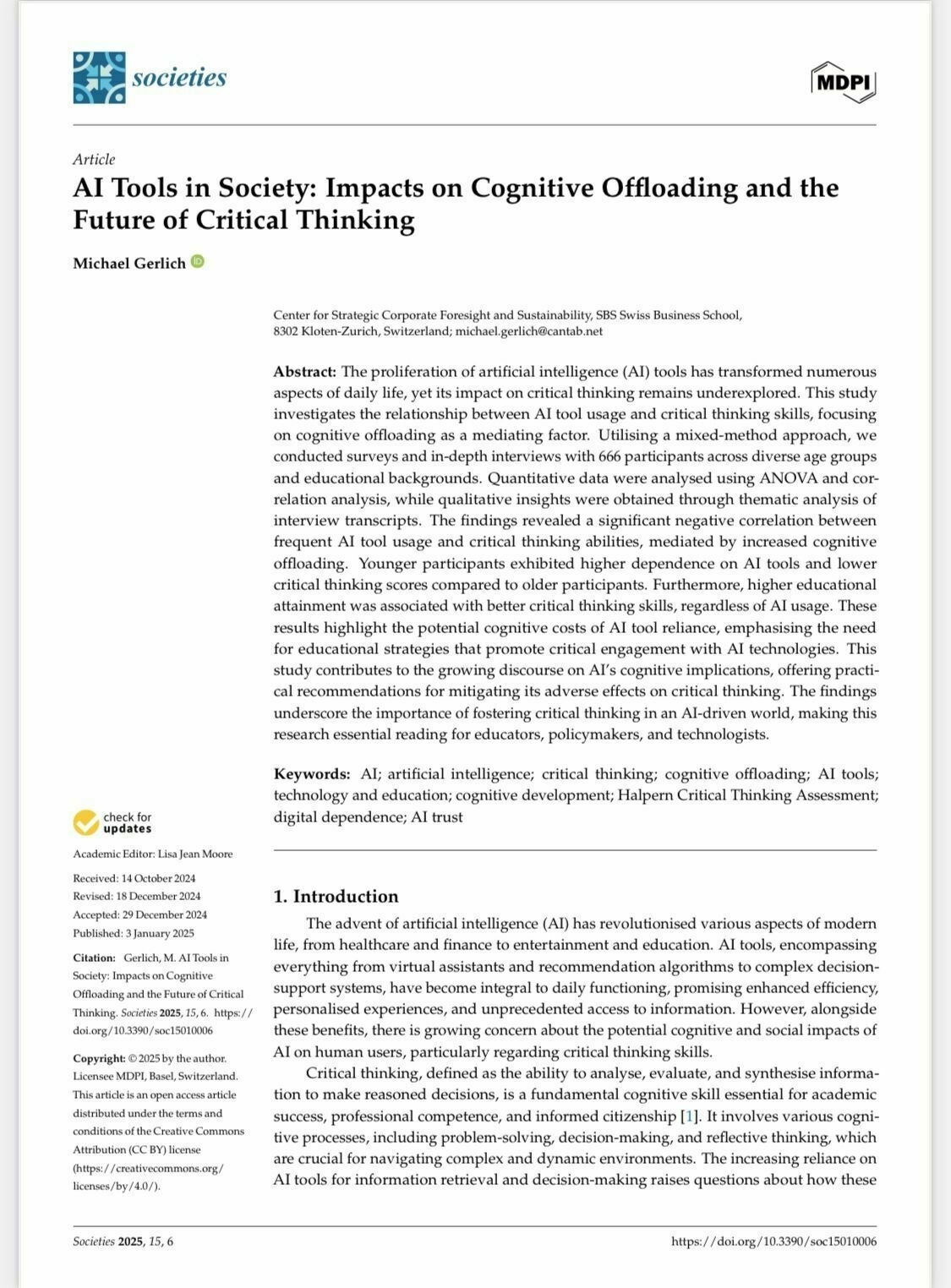AI and Critical Thinking #EduSky
This study, AI Tools in Society: Impacts on Cognitive Offloading and the Future of Critical Thinking, by Michael Gerlich landed on Linked In. Alas, the link to the study (Update: That link should work now) didn’t work for me. I dropped the screenshot of page 1 into ChatGPT, and voila, got the abstract:
The proliferation of artificial intelligence (AI) tools has significantly transformed various aspects of life, but their impact on critical thinking remains underexplored. This study examines the relationship between AI tool usage and critical thinking skills, with a focus on cognitive offloading as a mediating factor. Using a mixed-method approach, 666 participants from diverse demographics were studied through surveys and interviews.
Findings reveal that frequent AI tool usage negatively correlates with critical thinking abilities due to increased cognitive offloading. Younger participants showed higher dependence on AI tools and lower critical thinking scores, while higher education levels correlated with better critical thinking. The research emphasizes fostering critical engagement with AI technologies to mitigate cognitive impacts, offering actionable recommendations for educators and policymakers.
That sure sends a message, doesn’t it? On BlueSky, Matthew Facciani makes this point:
While AI can enhance efficiency in certain areas, over-reliance on these tools risks diminishing essential skills like problem-solving and analytical reasoning. My concern is that we may be fostering a generation with weaker critical thinking abilities, leaving them more susceptible to manipulation.
My response?
I am afraid that if you read up on critical thinking in the US (and you may already have), you will find anemic instruction on CT has had this result, not withstanding AI.
To support my assertion, I cite this TCEA blog entry on Critical Thinking for Leaders for Leaders and Educators that includes these stats:
- 86% find critical thinking skills lacking in the public at large.
- 60% of respondents reported not having studied critical thinking in school.
- Only about 55% reported that their critical thinking skills had improved since high school.
- 90% think courses covering critical thinking should be required in K-12 education
Those stats appear in a survey linked at the blog entry above, and are the lead-in to the rest of the entry about why critical thinking is so important. Check it out.
Page 1
Here’s the image shared via LinkedIn for your consideration:

via Linked In Post